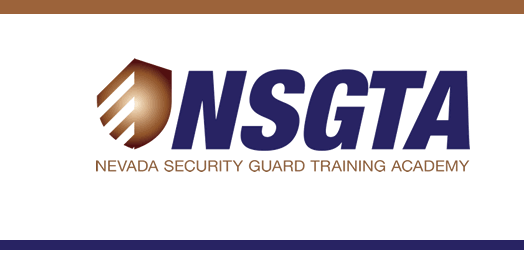NSGTA Security Guard Training Academy Courses
ROLE & RESPONSIBILITY OF A SECURITY GUARD COURSE SUBJECT DESCRIPTIONS
1. Role & Responsibility of a Security Guard: (one (1) hour
This course will teach students how to recognize the opportunities available within the private security industry. Students will examine the history of the security industry and discover the career pathways and requirements.
2. Use of Force (one (1 ) hour
This course will explain the use of force theory based on the National Use of Force Model (modified for security guards) and outline Section 25 of the Criminal Code, as security guards may find themselves in situations where they need to maintain their professional composure when under a high level of stress. The instructor will also address how to control a situation by asking questions, dealing with difficult customers/clients/subjects. This will include managing stress when isolated or fatigued.
3. Report Writing (one (1) hour)
This course provides an overview of investigation and evidence-gathering as they relate to private security work and composing a written report on a situation to which a guard respond. The learners will learn how to conduct interviews and collect and preserve evidence for responding authorities. This will include a review of court testimony by a security guard after the prosecution commences based on his/her report. Reports must be written or printed clearly, completely, brief and to the point in order for anyone to understand them.
The most important part of the Report Writing course will be to explain to individuals the key phasesof "Who, What, When, Where and Why"; the Five W's -in order to gain all the information needed for a written report. (Wallet card to carry listing the Five W's as a reference will be handed out to all learners.)
4. Active Shooter (one (1) hour)
This course is intended to help guards and supervisors to anticipate and respond appropriately to an active shooter situation as well as to manage the consequences of an active shooter incident. We will also focus on workplace violence and recognize potential indicators (suspicious behavior) to prevent a situation from occurring.
5. Civil & Criminal Laws & Liabilities (one (1) hour)
This course provides an overview of the components, structure, principles, and processes within the American criminal and civil justice systems. Students will learn the elements of a crime, the difference between civil and criminal law, the stages of criminal and civil procedures, and legal liability issues that can affect a security business or individual security officer.
6. Arrest & Detention (one (1) hour)
This course outlines the laws and procedures applicable to private security as compared to public law enforcement. Students will learn conditions and techniques for properly and legally responding to crimes in progress, securing crime locations, making arrests, and conducting search and seizure activities.
7. Emergencies, Threats & Evacuations (one (1) hour)
This course provides information on what to consider and how to best proceed when responding to medical emergencies, a variety of threats, and conducting an evacuation.
8. Building, Property & Assets (one (1) hour)
This course will explore tools and strategies to monitor and secure buildings and grounds. Topics include patrolling operations, methods and devices to prevent unauthorized entry and effective surveillance. Also included are lighting and detection technologies to enhance security.
**See Catalog for full details |


